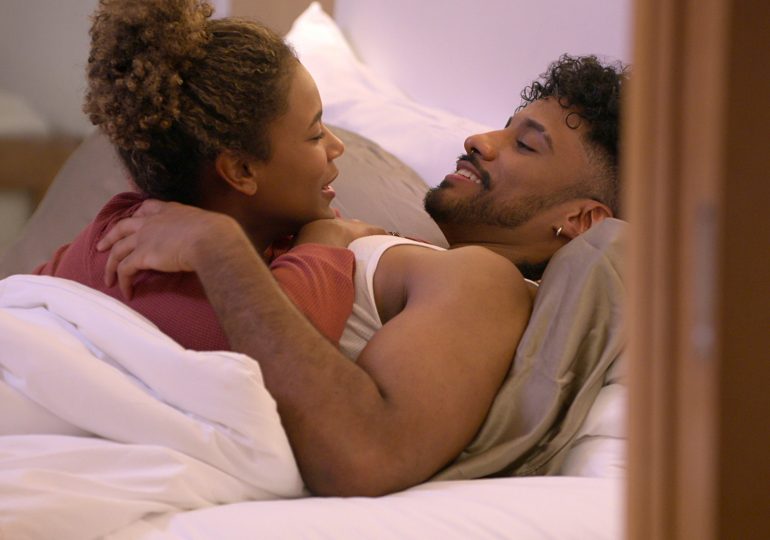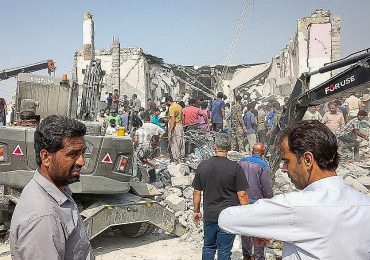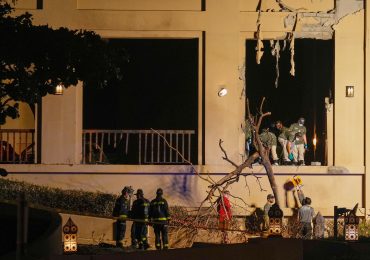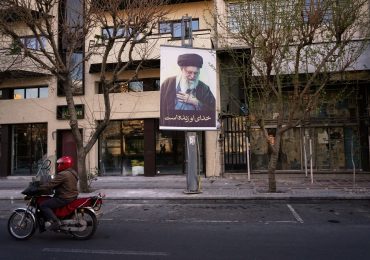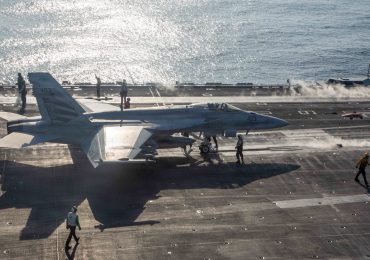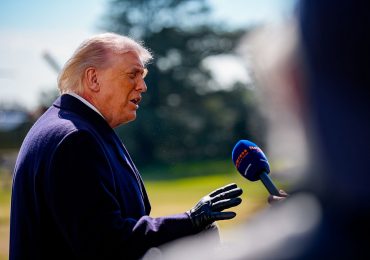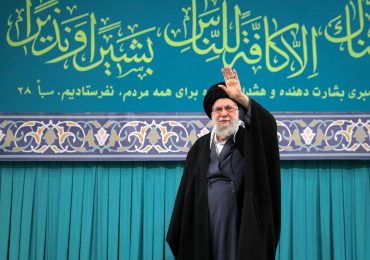This article discusses events from Love Is Blind Season 7, Episodes 7-9.
Love Is Blind, when you really get down to it, is a show about communication. Framed as a social experiment, it is premised on the hypothesis that all people really need in order to fall in love is hours and hours’ worth of open conversation about who they are, what they value, and what they’re looking for in a lifelong romantic partner. Over the course of seven seasons, we’ve watched couples—in the pods and outside them—negotiate everything from finances to whether they want to have kids. Yet, with rare exceptions like Bartise and Nancy’s infamous rift over abortion in Season 3, their personal discussions don’t really venture into the political realm (at least, as far as editors have chosen to show them in the final cuts).
[time-brightcove not-tgx=”true”]
Maybe because it’s set in Washington, DC, and features a fair number of policy workers and military veterans, Season 7 has been unusually engaged with such issues. More than one potential couple spoke, in the pods, about dating across the aisle. Stephen confessed to Monica that he had voted for Donald Trump in 2016 and Joe Biden in 2020; she accepted his proposal anyway (but comes to regret it, in Wednesday’s second batch of episodes, after finding kinky texts with another woman on his phone). Most remarkable of all, in Episode 7, the show keeps its cameras trained on Marissa and Ramses as they hash out their differences surrounding her military service, in what is easily the most substantive conversation Love Is Blind has ever aired.
In a dinner scene that spans a generous 12 minutes, Marissa George—a Navy veteran turned lawyer—and Ramses Prashad, who works for a justice-reform nonprofit, start out in small-talk mode, giggling over what she calls his extremely “à la dente” noodles. Eventually, they get into a thornier chat about the role religion will play in their wedding ceremony. Marissa expresses her preference for “anything but a cis-hetero” officiant (fine by Ramses) and says that “God can take a backseat.” Ramses replies that his mother “does feel a certain way” but would likely be happy praying with him before the ceremony. While differences in faith can prove insurmountable on Love Is Blind, as in life, these two are well on their way to a mutually acceptable compromise.
Then they go deeper, each explaining why they feel the way they do about religion—and discovering they aren’t as far apart as they might’ve assumed. Marissa tells Ramses about her experience as a woman of color in the overwhelmingly white, “men-centric” Mormon church. “I don’t hate religion,” she says, noting that some of the kindest people she’s ever known have been Mormons. “But when God is white in a church, and you’re taught white beliefs when it comes to religion, you start to believe a lot of those things.” For his part, Ramses was once involved in the ministry and remains open to the existence of a Christian God. “I pretty much grew up in the church my entire life. Fire and brimstone. Like, either you believe this or you’re going to hell,” he says. “But, inherently, in myself, I’ve just always felt like something felt off about that… Let’s say I die, and there is a God, and I’m standing before him. I don’t think he’s gonna judge me for having questions.” “He or she or they,” Marissa prompts, and he agrees. It’s a lovely moment. Not only do they (and we) discover how their differences are rooted in their experiences; they also find enough common ground to appreciate each other’s beliefs.
From there (via brief discussion of Past Lives and Barbie), Ramses and Marissa delve into an issue that’s harder for them to resolve: her years in the U.S. military. It’s clearly an emotional topic for her, and one about which she’s still sorting out her own internal conflicts. Raised in a military family and pressured to go into the service, she once “truly believed in the military” and considered herself “very patriotic” but is now critical of “the brainwashing that military does.” No longer does she “support half the sh-t the military does. What we do in other countries,” she says, “I don’t support.” Still: “I can’t look at the military and say it completely sucks, because it changed my life and provided me opportunities.” Nor can Marissa blame other soldiers who, in many cases, enlisted when they were too young to comprehend the implications of their actions abroad. And at the same time as she condemns American imperialism, which drove her to leave the service, she believes it has necessitated a strong defense to keep people at home safe.
Ramses—who comes from Venezuela, which has a long and complicated history with American intervention—has a harsher view of the military. “I always take the perspective of people from the outside looking in,” he tells Marissa. “I wasn’t born here. I do live here now. I understand that I’m privileged to live in this country. But, at the same time, I will always heavily critique how the U.S. has sort of just destabilized entire countries.” He invokes James Baldwin, probably for the first time in the history of reality television, paraphrasing the famous quote: “I love America more than any other country in the world and, exactly for this reason, I insist on the right to criticize her perpetually.” And even as he acknowledges that he couldn’t marry Marissa if she were still in the military, he assures her: “I don’t want you to feel judged. You have a great heart.”
The conversation doesn’t settle their conflict, which they continue to hash out in subsequent episodes. Nor does it have the specificity or factual rigor to genuinely educate viewers on the issue at hand. What Love Is Blind does manage to do, without cutting the scene short or inserting a pat takeaway or judging either Ramses or Marissa, is to demonstrate how personal history shapes political beliefs—which can in turn be crucial to the question of whether a romantic relationship will work. Disagreements don’t always happen because one party is evil or stupid or objectively wrong; two introspective, open-minded people can easily come to opposite conclusions based on disparate experiences. Nor does every political dispute resolve neatly into a Democratic view versus a Republican one. While both halves of this particular couple would presumably fall on the left side of that binary, there are fundamental differences between what each believes and why. Especially at the peak of a presidential election season where, as usual, the range of viewpoints in American political life has been limited by the two major parties’ platforms, it’s refreshing to see more nuanced disagreements not just represented, but explored.
Speaking of nuance, it’s also worth considering how this unprecedented scene fits into the story Love Is Blind has been telling about itself for the past seven seasons. Introduced as a chance for high-minded singles earnestly seeking lifelong love to find their soulmates, sight unseen, the show has since faced constant controversy, ranging from participants’ complaints about the conditions on set to a handful of alarming lawsuits. Those of us who’ve continued to watch it have, in many cases, done so despite our reservations about what might be going on behind the scenes. As admirable as it is to see Love Is Blind represent cast members’ conversations about real, contemporary issues (Ramses mentions Palestine in a later episode) with documentary accuracy, producers’ choice to do so could certainly be motivated by anxiety about the show’s declining reputation. As in Marissa and Ramses’ chat, more than one thing can be true.
Leave a comment
